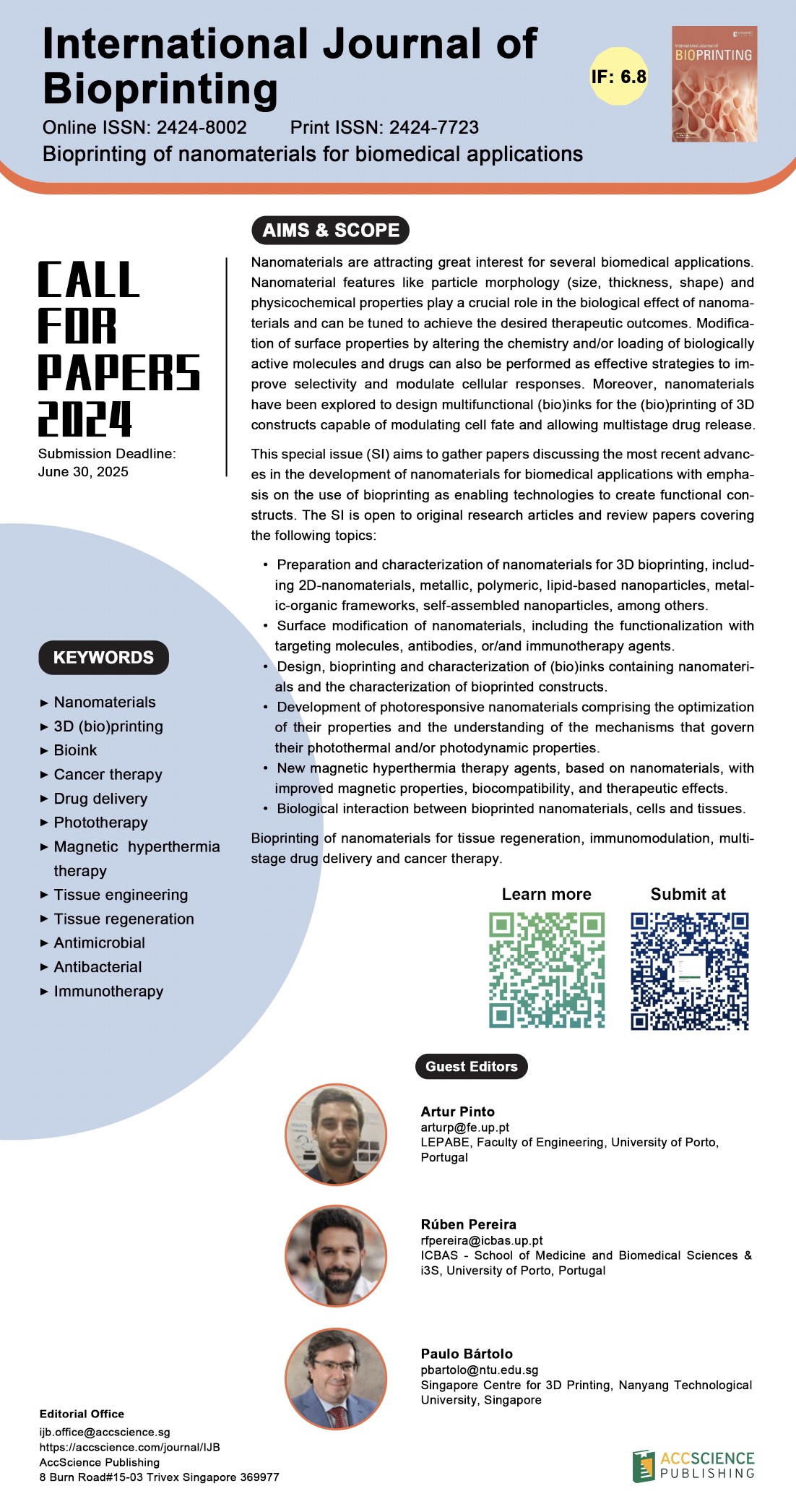
Nanomaterials are attracting great interest for several biomedical applications. Nanomaterial features like particle morphology (size, thickness, shape) and physicochemical properties play a crucial role in the biological effect of nanomaterials and can be tuned to achieve the desired therapeutic outcomes. Modification of surface properties by altering the chemistry and/or loading of biologically active molecules and drugs can also be performed as effective strategies to improve selectivity and modulate cellular responses. Moreover, nanomaterials have been explored to design multifunctional (bio)inks for the (bio)printing of 3D constructs capable of modulating cell fate and allowing multistage drug release.
This special issue (SI) aims to gather papers discussing the most recent advances in the development of nanomaterials for biomedical applications with emphasis on the use of bioprinting as enabling technologies to create functional constructs. The SI is open to original research articles and review papers covering the following topics:
- Preparation and characterization of nanomaterials for 3D bioprinting, including 2D-nanomaterials, metallic, polymeric, lipid-based nanoparticles, metalic-organic frameworks, self-assembled nanoparticles, among others.
- Surface modification of nanomaterials, including the functionalization with targeting molecules, antibodies, or/and immunotherapy agents.
- Design, bioprinting and characterization of (bio)inks containing nanomaterials and the characterization of bioprinted constructs.
- Development of photoresponsive nanomaterials comprising the optimization of their properties and the understanding of the mechanisms that govern their photothermal and/or photodynamic properties.
- New magnetic hyperthermia therapy agents, based on nanomaterials, with improved magnetic properties, biocompatibility, and therapeutic effects.
- Biological interaction between bioprinted nanomaterials, cells and tissues.
Bioprinting of nanomaterials for tissue regeneration, immunomodulation, multistage drug delivery and cancer therapy.
Development and in vitro evaluation of bioprinted plasma-infused biocarriers for mesenchymal stromal cell delivery in musculoskeletal disorder treatment
Collagen-sodium alginate-silk fibroin 3D-printed scaffold loaded with polydatin promotes cartilage regeneration by improving lipid metabolism and cell apoptosis
3D printing technology: Driving pioneering innovations in anti-cancer drug delivery systems
Neural cell responses to spinal implant biomaterials in a 3D-bioprinted cell culture model




